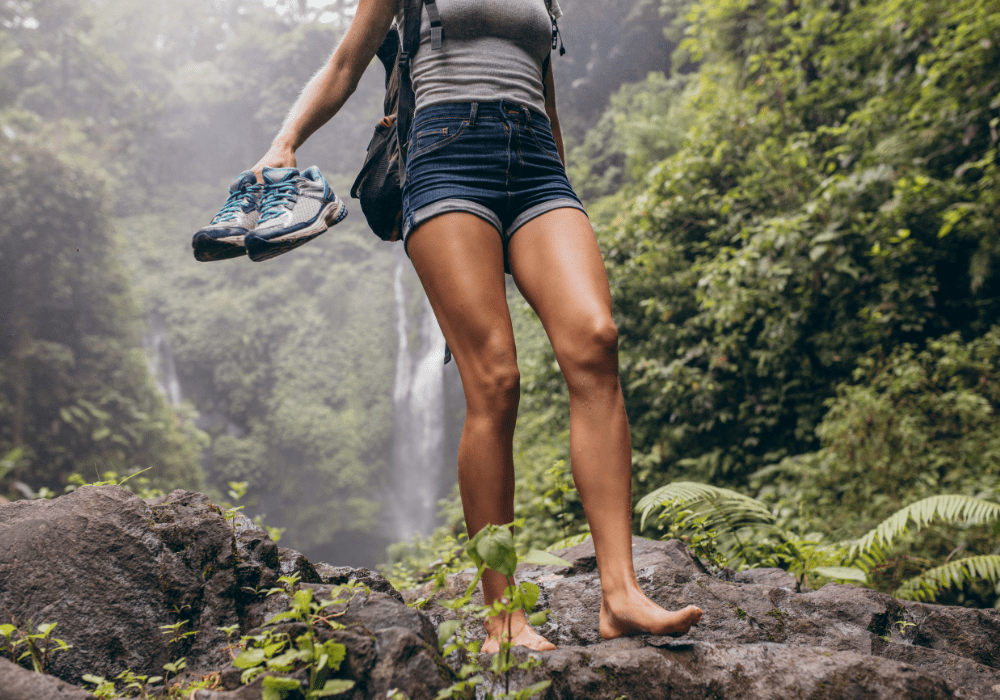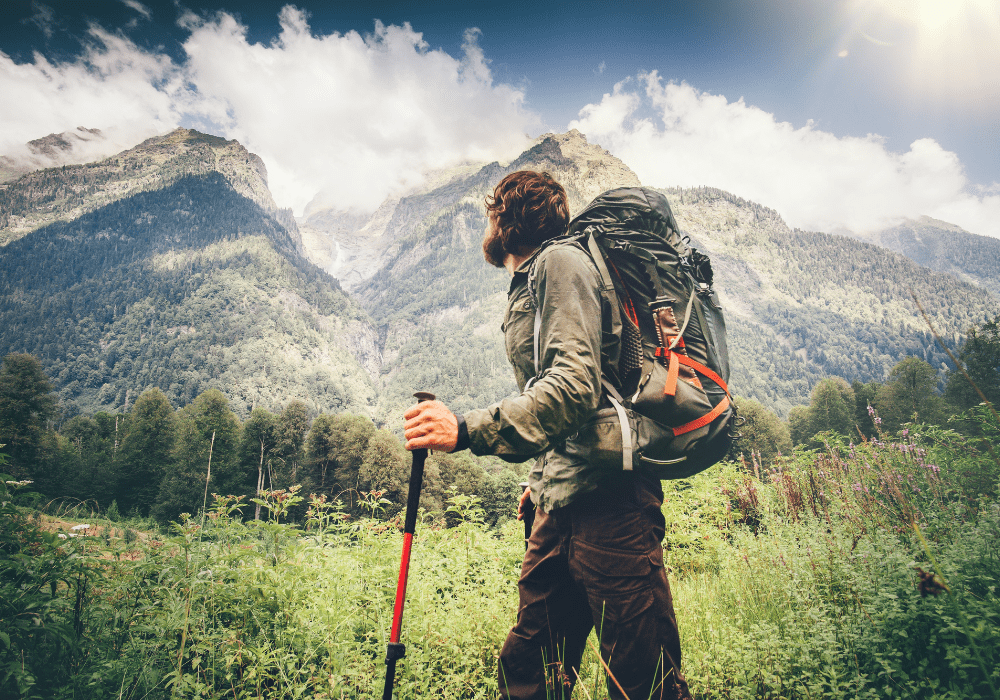8 Surprisingly Healthy Reasons To Hike Barefoot

Hiking barefoot might seem like an unconventional idea in a world where sturdy hiking boots are considered essential gear. However, this age-old practice offers surprising health benefits beyond the mere thrill of feeling the earth beneath your feet. From improving balance to strengthening muscles, here are eight unexpectedly healthy reasons to consider hiking barefoot.
- Enhanced Sensory Experience: When you hike without shoes, your feet connect directly with the ground, allowing you to experience various textures, temperatures, and terrains. This sensory stimulation can heighten awareness, improve focus, and deepen your connection with nature.
- Improved Balance and Proprioception: Walking barefoot challenges the body’s proprioceptors—the sensory receptors in muscles, tendons, and joints that contribute to spatial awareness and balance. Over time, this practice can enhance proprioception, leading to better balance and stability, both on and off the trail.
- Strengthened Foot Muscles: Shoes provide support and cushioning, but they can also restrict natural foot movement and weaken muscles. Hiking barefoot engages the intrinsic muscles of the feet, ankles, and lower legs, promoting strength and flexibility.
- Better Posture and Alignment: Walking barefoot encourages a more natural gait and posture, as it allows the feet to flex and move freely. This can help correct imbalances, improve spinal alignment, and reduce the risk of certain foot-related issues.
- Increased Circulation: The direct contact of bare feet with the ground stimulates nerve endings and encourages better blood circulation. Improved circulation can aid in reducing inflammation, promoting faster recovery, and boosting overall foot health.
- Natural Exfoliation and Toughening: Regularly hiking barefoot can naturally exfoliate the soles of your feet, removing dead skin and calluses. Additionally, exposure to different surfaces can toughen the skin, making your feet more resilient.
- Reduced Stress and Anxiety: Connecting with nature through barefoot hiking has proven psychological benefits. It can reduce stress, anxiety, and depression while promoting a sense of calmness and well-being.
- Connection with Nature: Lastly, walking barefoot allows for a deeper connection with the natural environment. Feeling the earth directly beneath your feet fosters a sense of intimacy with the surroundings, leading to a more profound appreciation of nature.
Before embarking on a barefoot hiking adventure, it’s crucial to start gradually, allowing your feet to adapt to different surfaces and conditions. Begin with short walks on soft, safe terrains, and gradually progress to more challenging trails as your feet become accustomed to the experience.
Remember, barefoot hiking may not be suitable for everyone, especially individuals with certain foot conditions or sensitivities. Consulting a healthcare professional before attempting barefoot hiking is advisable.
In conclusion, while hiking barefoot might initially seem unconventional, it offers a myriad of surprising health benefits beyond the physical aspect. It’s a practice that not only strengthens the body but also nurtures a deeper connection with nature—an experience that’s truly enriching for both mind and soul.


